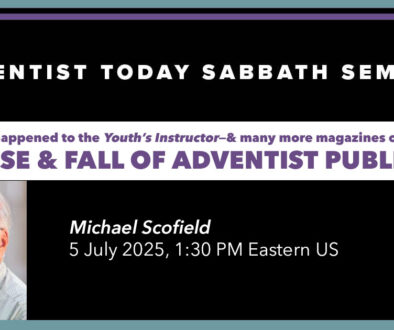Sharing Scripture — August 22 – 28
This is a tool for you to use if you lead a Sabbath School (SS) class or small group. It is keyed to the Bible texts used in the current week’s Adult SS lesson and includes a brief story from current news you can use to introduce the discussion and then a series of discussion questions in a relational pattern designed to build fellowship and spiritual reflection.
The Rhythms of Rest
For use: August 22 – 28, 2021
Texts: Genesis 1; Exodus 20:8-11; Exodus 16:14-31; Deuteronomy 5:12-15; Psalm 92; Isaiah 58:13
It turns out that the practice of being available 24/7 is not good for your health, or the health of your employer’s bottom line. Even though many CEOs value such drive and determination, overworking is actually counterproductive.
Worker data from World War I give us some valuable insights into the sweet spot for employee productivity. British women on the munitions production lines (called “Munitionettes”) typically worked 50 hours per week, and sometimes up to 72 hours. The records of hours worked compared to productivity show that output actually fell during these longer workweeks. The sweet spot for production landed between 30-40 work hours a week.
Days off also played an important role in productivity. At the start of the war, Munitionettes often worked seven days a week. Comparing data from weeks worked with no days off to those when they did take a day off shows that production dropped on the no-day-off weeks between 13.5% and 17%. Production decreased as the workers’ unhappiness and dissatisfaction increased. The study’s conclusion is that proper rest is vital to both workers’ health and businesses’ profit margins.
God certainly understood humanity’s need for regular periods of rest and days off. The Creator tuned our physiological systems with a biological clock known as the circadian rhythm. When our bodies get out-of-sync with that natural clock, we suffer health consequences—both physical and mental.
Sabbath is God’s prescription for ensuring that we don’t drive ourselves over a cliff with the intemperance of overwork. Sabbath also puts our work in perspective: it will never be done! There’s always more for us to do. Unlike God, who could pronounce the creation “very good,” and declare that it was finished, we must admit our work will always fall short of perfection. There comes a point when we have to step back and say, “I’ve done what I can, it’s good enough and I’m finished with it.”
On Sabbath, we can set aside the stress of productivity and rest in the knowledge that God’s grace is sufficient to cover all of our shortcomings, both spiritually and in every other aspect of our daily lives.
[symple_divider style=”solid” margin_top=”20″ margin_bottom=”10″]
Connecting: Have you ever worked on a time-critical project that required long hours and no days off? How did you do? How long do you think you could keep it up before your own health and productivity suffered?
Sharing: After six days of creation and the seventh day of rest, why didn’t God resume creating more things during the next week?
- God had already created everything that can be created
- What God created in those six days was everything that God intended to create
- God set creation in motion, and it continues as babies are born and seeds germinate into plants
- God declared that the whole of creation was very good on that Friday, and therefore didn’t want to mess it up by over-tinkering
- God left the earth after that first Sabbath and went over to another corner of the universe to do more creating
- Other:
Applying: What, to you, is the perfect Sabbath? Brainstorm a schedule for the best Sabbath day ever.
Valuing: Is your body in tune with its natural, biological clock? Are you adding to your stress through work-life imbalance? If your work schedule is slowly killing you, pray that God will show you how to live a healthy, balanced lifestyle.
~ Chuck Burkeen
Photo credit: https://bensonbaptist.org/zoom/




